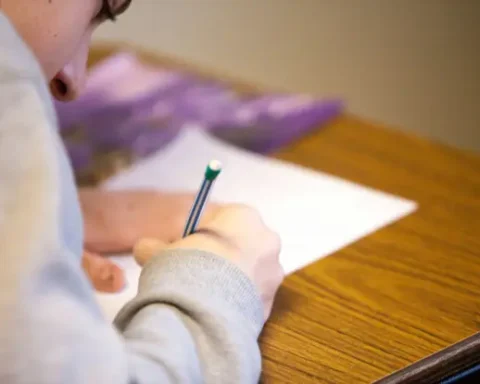The different ways through which educational psychology promotes teaching and learning in schools and some of the most important gains that are likely to be achieved when this strategy is applied effectively.
Effective teaching and learning are promoted through the essential role played by educational Psychology. Applying educational psychology principles allows educators to gain insights into student learning. To create teaching methods that suit the varying needs of learners, Educational Psychology offers important direction. Promoting critical thinking and fostering positive relationships between teachers and students provides insight that can be used to gauge students’ understanding of a specific concept or subject. This interdisciplinary field utilizes theories and methods from psychology, sociology, and neuroscience to inform educational practices and facilitate student success. This essay analyses ten techniques Educational Psychology uses to enhance teaching and learning. Moreover, it stresses how including these principles can prove advantageous for educational practices. It is vital to note that students having difficulty seeking academic assistance can always seek academic help from reputable custom writing companies like Peachy Essay.
Understanding the Learning Process
By exploring various aspects of human behaviour and cognition, educational psychology assists teachers in understanding how students learn. The learning process involves memory role as well as attention and perception. Tailoring teaching approaches to suit individual learners is possible when teachers understand how students learn. To help visual learners in the classroom, teachers may use visual aids, and kinaesthetic learners, may use interactive activities.
Creating Positive Learning Environments
A positive classroom environment is emphasized in educational psychology. Encouraging a feeling of inclusion and fostering positive connections with students while offering chances for them to experience success. Exploration and collaboration can be encouraged by a positive learning environment. Positive reinforcement and praise and developing a sense of community within the classroom or virtual space enable instructors to build an affirmative educational climate.
Enhancing Student Motivation
Educational psychology presents techniques to increase student motivation. Teachers can actively employ goal-setting techniques, positive feedback, and rewards to motivate students to participate in their learning process. According to research conducted on the subject matter of motivation types and their effectiveness levels. Intrinsic motivation outperforms extrinsic motivators in terms of efficacy. As a strategy to promote learning, teachers can offer autonomy opportunities.
Incorporating Technology
According to educational psychology research, it’s essential to integrate technology into classrooms. Engaging students with technology can improve instruction and provide valuable feedback. Teachers can use interactive whiteboards, educational apps, and online quizzes to improve their teaching methods. Technology makes it possible to tailor instruction and provide differentiation opportunities that meet individual learners’ needs.
Providing Feedback
Providing timely and constructive feedback is accentuated as important by educational psychology. The provision of feedback enables students to grasp their progress and detect the aspects that necessitate enhancement. The key to delivering effective feedback lies in its specificity and actionability while focusing on tasks instead of individuals. To encourage self-reflection and self-improvement, feedback can also be utilized.
Adapting Instruction
Educational psychology stresses adapting instruction to cater to individual learners’ needs. One must understand and use various teaching strategies and techniques to accommodate different learning styles. Teachers can modify their instruction using differentiation, scaffolding, and modelling strategies. Differentiation requires adjusting instructional strategies in response to students’ diverse learning styles and abilities, while scaffolding necessitates dividing challenging assignments into more manageable segments.
Encouraging Critical Thinking
To solve problems or make decisions through critical thinking means analysing and evaluating information. Educating critical thinking skills through instructional design is endorsed by educational psychology because it has practical applications in multiple areas. Cultivating critical thinking abilities among students is possible through the utilization of different instructional approaches by teachers. To question effectively is a good strategy. Open-ended questions asked by teachers can require students to analyse and evaluate. Employing brainstorming as a tactic can foster critical thinking abilities. Students are prompted to create numerous ideas or solutions during a brainstorming session. By doing this, students can use their imagination and contemplate diverse outlooks. One can use discussion as a valuable strategy to encourage critical thinking skills development. The exposure to varying opinions during class discussions helps students expand their viewpoint on topics discussed, resulting in an improved ability for nuance.
Fostering Self-Regulated Learning
When practicing self-regulated learning, students are actively involved in their learning process. Setting goals and reflecting on one’s learning experiences are important aspects of being a self-regulated learner instead of simply following the teacher’s instructions and completing assigned tasks. Allowing learners to define their academic aims is an approach educators might employ to cultivate autonomous learning. Helping students identify their preferred areas of study and their significance can motivate them to focus on their academic goals. After setting their objectives and targets for themselves, students can be aided by teachers to keep track of the progress made towards attaining them. When needed, support can be offered by tracking progress and providing feedback. Self-regulated learning also involves reflecting on one’s progress. Thinking about one’s thinking is what metacognition entails for students.
Addressing Learning Disabilities
Insights into addressing learning disabilities are provided by educational psychology. Accommodations and modifications provided by teachers using this knowledge can help students with learning disabilities achieve success. Assistive technology and breaking assignments into smaller parts are two ways to offer accommodations and modifications. Working alongside experts like special education teachers or speech therapists is an effective strategy for educators seeking to help pupils facing academic challenges related to their disabilities. Expertise from these specialists can be sought to receive guidance on unique learning disorders. Furthermore, they help establish customized education blueprints (IEPs) for pupils with special needs. General education teachers working with specialists can guarantee that students get the necessary support to excel in school. All learners can benefit from instruction created using Universal Design for Learning (UDL) principles that teachers can utilize.
In conclusion, there are numerous ways through which educational psychology promotes teaching and learning. Applying educational psychology principles allows educators to gain insights into student learning. To create teaching methods that suit the varying needs of learners, Educational Psychology offers important direction. To solve problems or make decisions through critical thinking means analysing and evaluating information. Educating critical thinking skills through instructional design is endorsed by educational psychology because it has practical applications in multiple areas.





